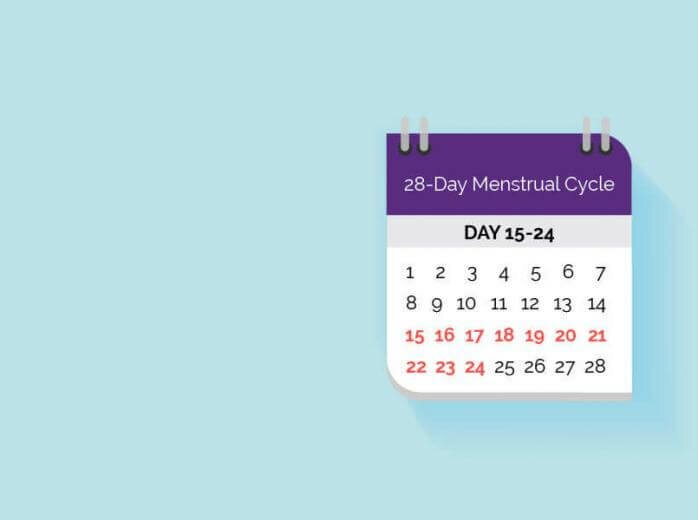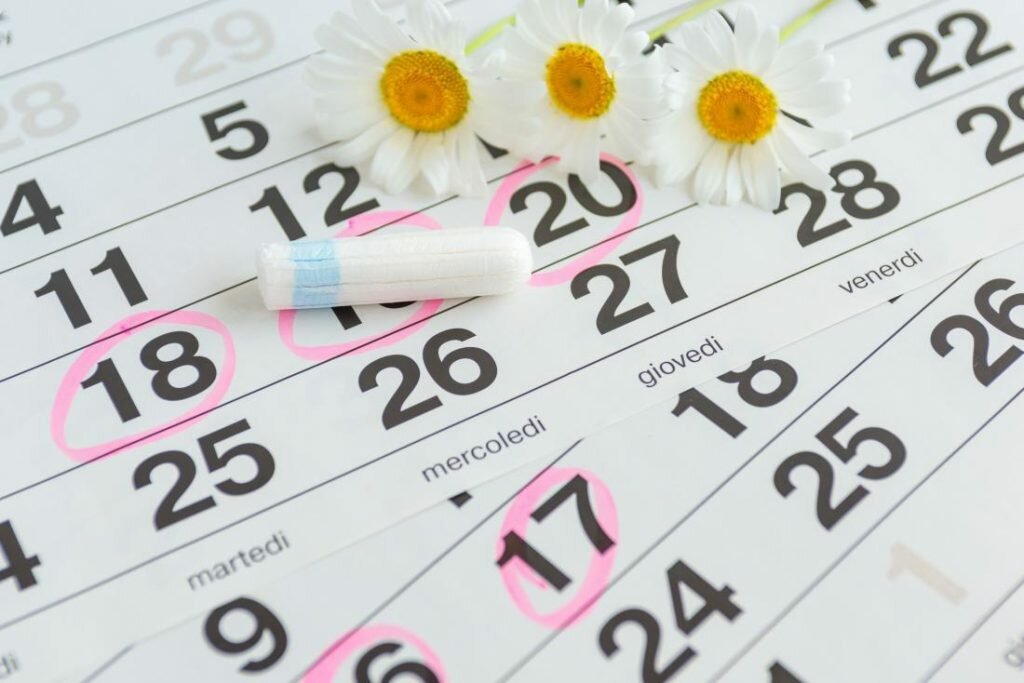Woman’s Health – All About The Menstrual Cycle
What is Menstruation?
Menstruation which is a period of time which woman approximately from the ages of 12[1] until menopause -which is around the ages of 50[2] faces every single month at least for 3 to 4 days. According to the U.S. Department of Health & Human Services, menstruation as known as the period is basically a woman’s monthly bleeding. When a woman menstruates, the body discards the unwanted and monthly buildup from the lining of the uterus which is known as the womb, the discard is also called menstrual blood which is both mixtures of tissue and some dirty blood, it flows from the woman’s uterus through the small opening the in the cervix and passes out of the body through the vagina. During the monthly menstrual cycle, the uterus prepares itself for pregnancy by building up it’s lining. If a woman does not get pregnant, then the estrogen and progesterone hormone levels begin to fall, which shows that your body begins menstruation[3].
There is no woman that does not experience period cramps or mood swings during or before their period -the symptoms that occur before the menstrual cycle is called PMS (premenstrual symptoms). As we know from the information above, during menstruation, there are hormones of estrogen and progesterone that beings to decrease menstruation, thus the shift in these hormones leads to both physical symptoms such as cramps, and emotional symptoms such as mood swings.

What Changes Happen in the Brain During Menstruation?
Starting from pre-menstruation, the hormones start to change, specifically, estrogen and progesterone levels which influences the serotonin levels of the body. Serotonin is a neurotransmitter that helps to regulate the mood, sleep cycle and appetite in human body[4]. Before and during the period, with the decrease of the hormone estrogen and progesterone, serotonin also decreases from time to time, which is the reason why the woman experiences the feelings of sadness and irritability, sleep disturbances and unexpected food cravings because low levels of serotonin causes so.
What Does the Science Say For PMS or Menstruation?
There is a research done by David Silbersweig and his colleagues, applied to 12 woman who do not experience mood swings in their menstrual period in order to understand, prevent or treat mood swings during the menstrual period. Silbersweig and his colleagues recruited 12 women who experience consistently steady moods during their cycle, to create a baseline for future studies of women with huge mood swings. The researchers conducted tests and brain scans two times during the monthly cycles of those 12 women; once during the premenstrual phase and again about ten days later -which is the time the menstruation is predicted to happen. Researchers asked participants to press a button in response to negative and positive words that occur on the screen. As the women completed the task, their brains were scanned by using fMRI (functional magnetic resonance imaging), which measures even the tiny changes in the brain. The researcher team focused on the medial orbitofrontal cortex which is the brain region that shows the emotion control. According to the findings, the women’s emotional response to the words was not significantly different during the month, which means it was supporting the idea that they do not suffer from PMS. However, their brain scans through fMRI did show a change; they had significant increase in activity in the medial orbitofrontal cortex during the premenstrual part of their cycle[5]. Researchers from the study theorize that this boost of brain activity could be what helps woman to keep their emotions steady as their hormones flow during their PMS and menstruation itself.[6] However, in order to say that those women who experience mood swings and do not experience mood swings are differing by their brain activity the researchers must collect the similar data on the brain activity from the woman that reports severe mood swings starting from their PMS while also considering the different hormone levels that we come across in different people.
There is another research that suggests that cells in a brain region called the hippocampus generate different types of receptors for the brain chemical GABA during several stages of the menstrual cycle. The changes mentioned may affect a woman’s sensitivity to anxiety, depression, and seizures. Still, according to the researchers, both estrogen and progesterone have effects on nerve cell activation, but the mechanism behind changes in seizure activity and increased anxiety are unknown. They say their study might offer a new molecular basis for the severe anxiety and depression some women experience in the week or so before their period, known as premenstrual dysphoric disorder — PMDD.PMDD. This may also explain why many women with epilepsy suffer more seizures during this time. The results of the study appear in the journal Nature Neuroscience[7].

However, people must not mix up the brain’s change with the brain’s performance. According to a new study done in order to determine whether changes in hormones during the menstrual cycle really do change how well brains perform. By increasing the sample size and following participants over more than one menstrual cycle, they found evidence that your brain’s performance isn’t affected by your cycle[8].
To sum up, yes, woman has menstrual cycle and it effects their life but except for the severe pain that some woman experiences every time (that severe pain could be still cured by medication nowadays but only can’t be treated completely) does not affect negatively the performance of how the woman brain works.
[1] Retrieved from https://www.nhs.uk/conditions/periods/starting-periods/
[2] Retrieved from https://www.menopause.org/for-women/menopauseflashes/menopause-symptoms-and-treatments/are-we-there-yet-navigate-now-with-our-guided-menopause-tour
[3] Retrieved from https://www.womenshealth.gov/menstrual-cycle/your-menstrual-cycle
[4] Young SN (November 2007). “How to increase serotonin in the human brain without drugs”. Journal of Psychiatry & Neuroscience. 32 (6): 394–9. PMC 2077351. PMID 18043762.
[5] Protopopescu X., et al. (2005). Proceedings of the National Academy of Science, 101. 16060 – 16065.
[6] Pletzer, B., Harris, T., Scheuringer, A. et al. The cycling brain: menstrual cycle related fluctuations in hippocampal and fronto-striatal activation and connectivity during cognitive tasks. Neuropsychopharmacol. 44, 1867–1875 (2019). https://doi.org/10.1038/s41386-019-0435-3
[7] Maguire, J. Nature Neuroscience, advance online edition, June 2005. Retrieved from https://www.webmd.com/women/news/20050516/menstrual-cycle-may-change-womens-brains
[8] Brigitte Leeners, Tillmann H. C. Kruger, Kirsten Geraedts, Enrico Tronci, Toni Mancini, Fabian Ille, Marcel Egli, Susanna Röblitz, Lanja Saleh, Katharina Spannaus, Cordula Schippert, Yuangyuang Zhang, Michael P. Hengartner. Lack of Associations between Female Hormone Levels and Visuospatial Working Memory, Divided Attention and Cognitive Bias across Two Consecutive Menstrual Cycles. Frontiers in Behavioral Neuroscience, 2017; 11 DOI: 10.3389/fnbeh.2017.00120



